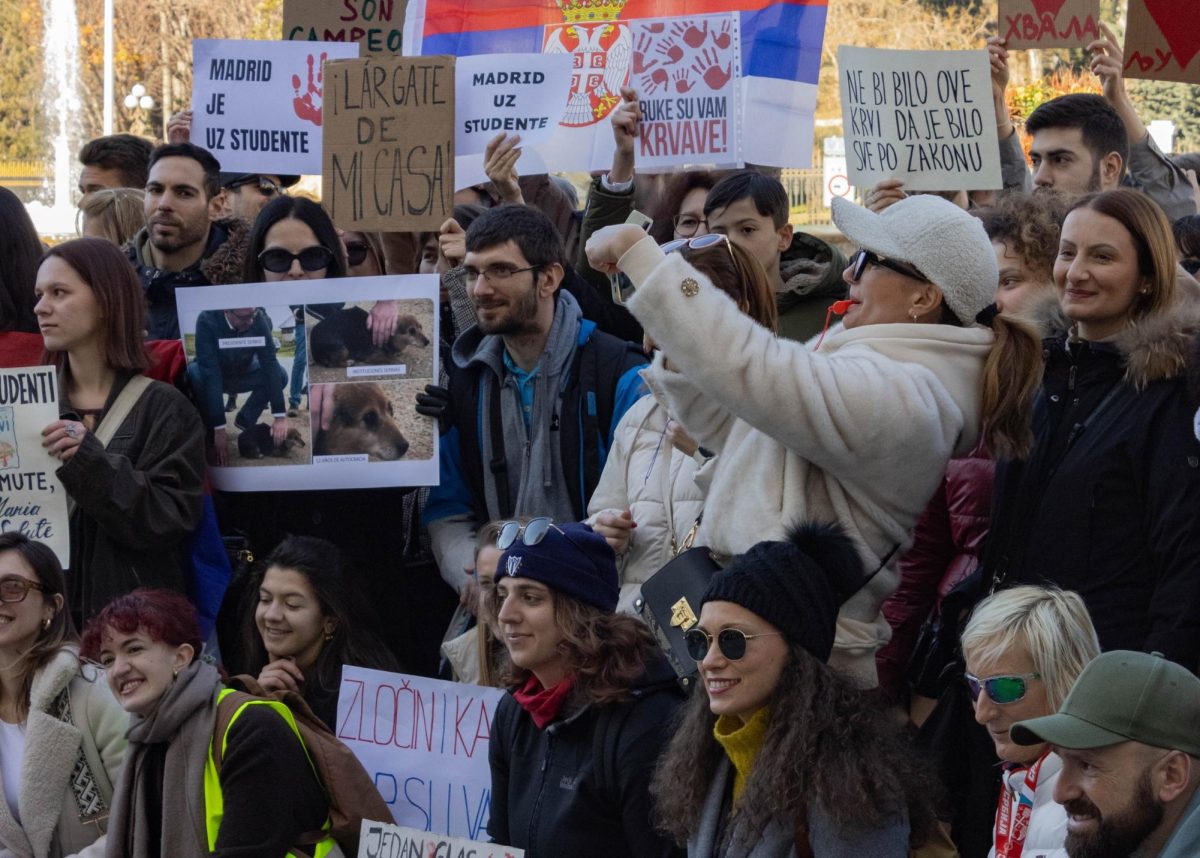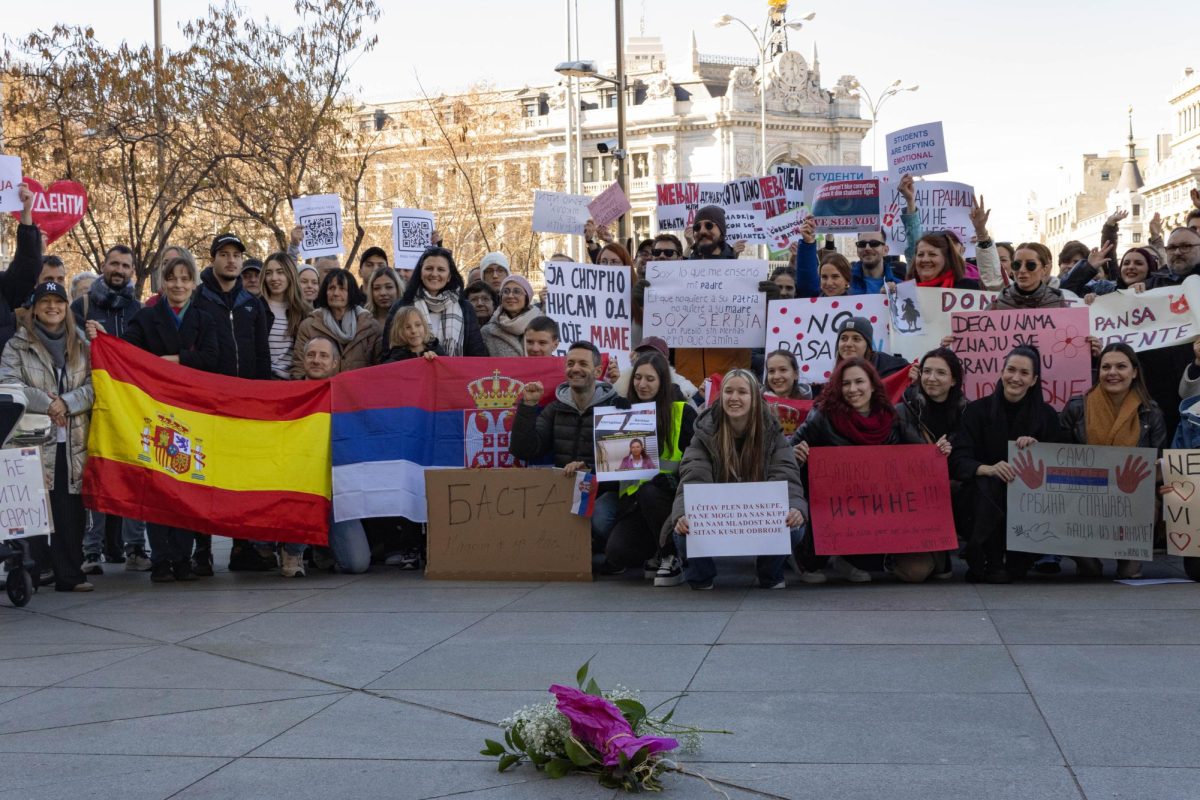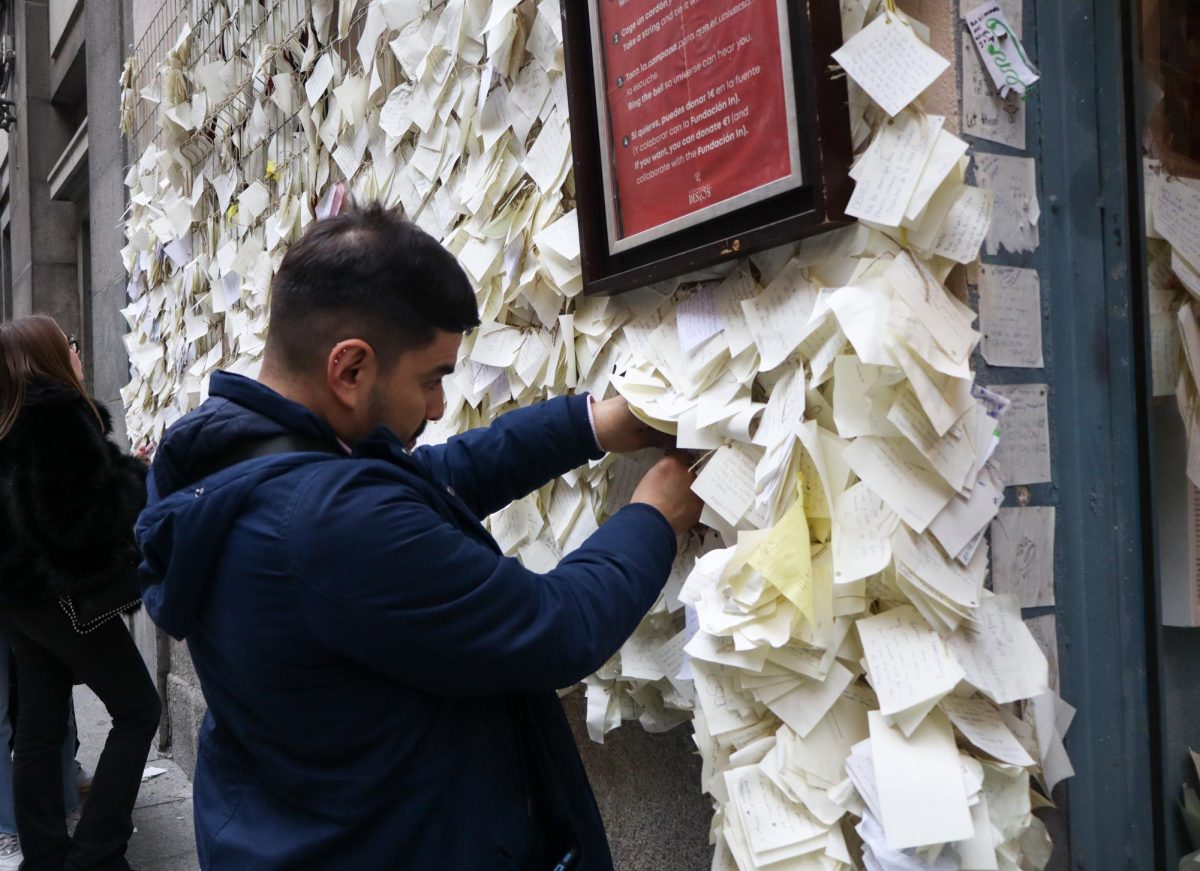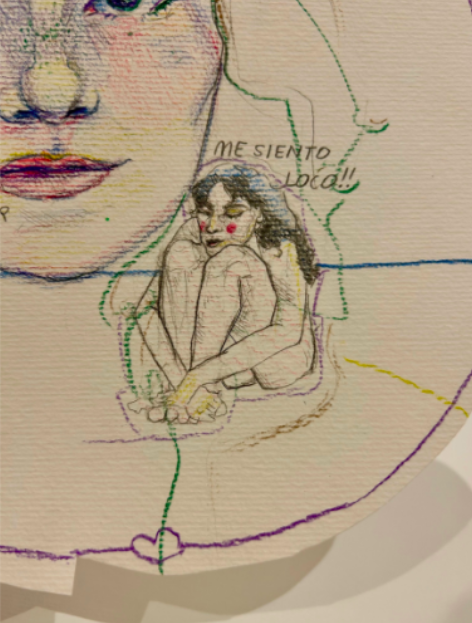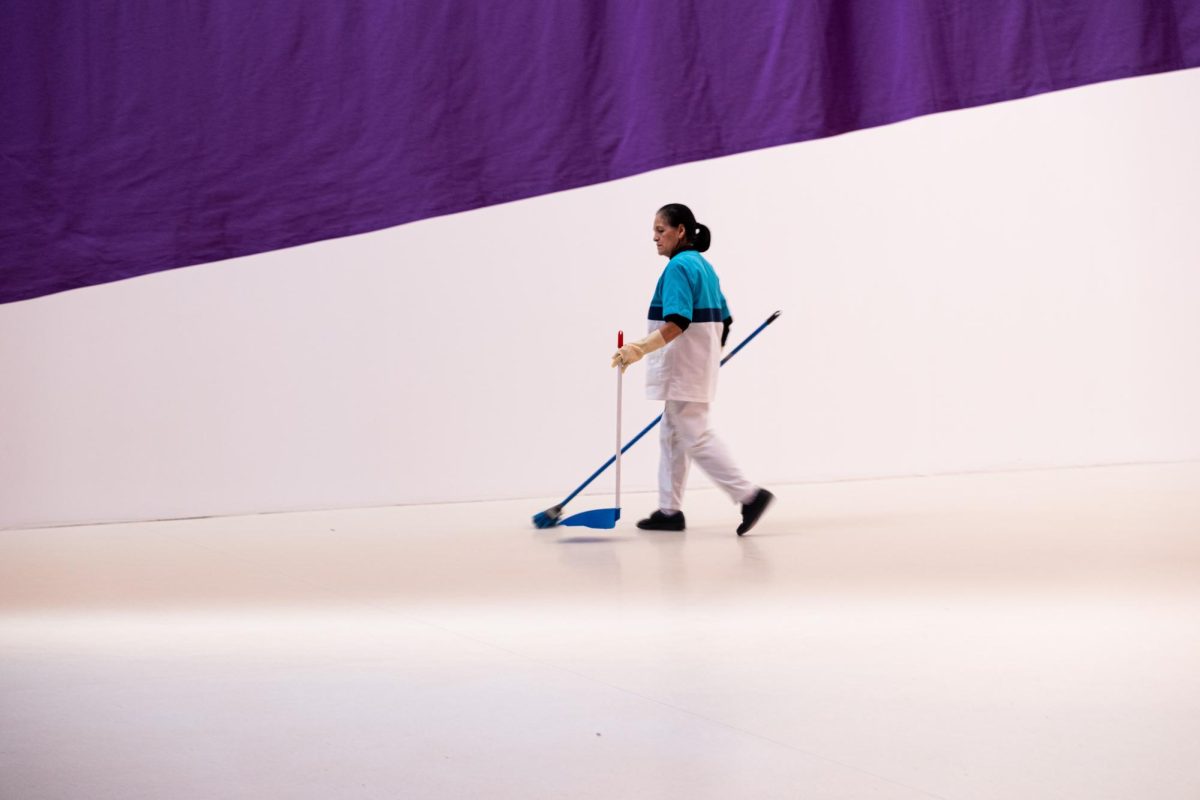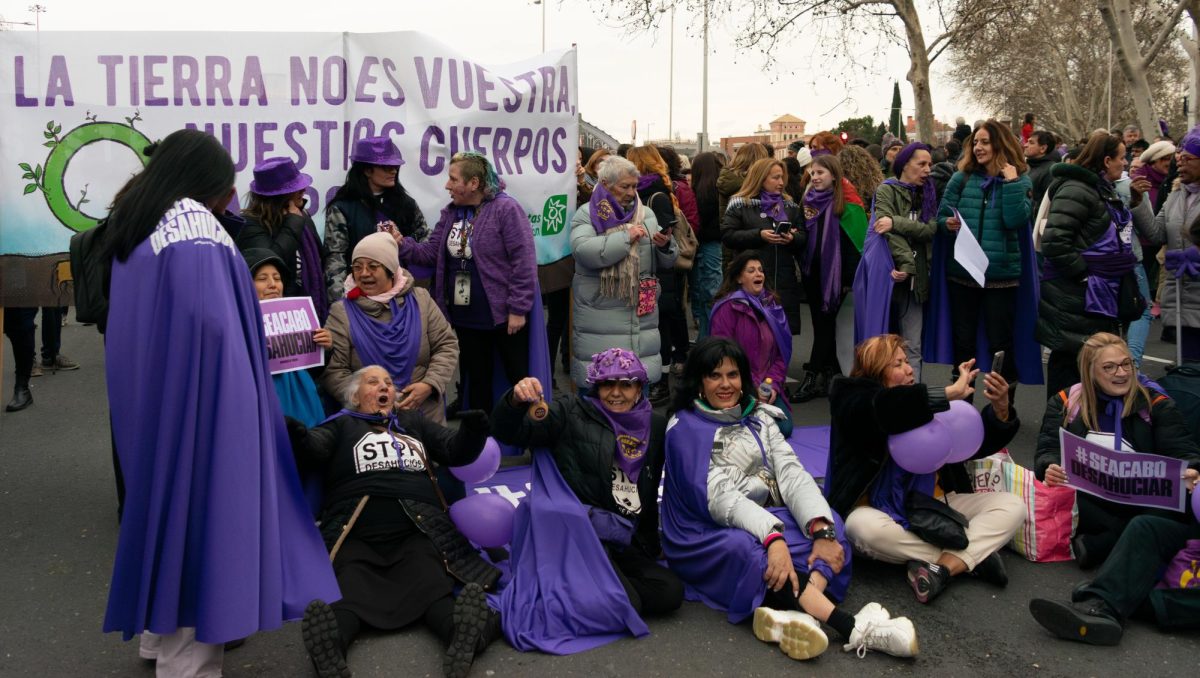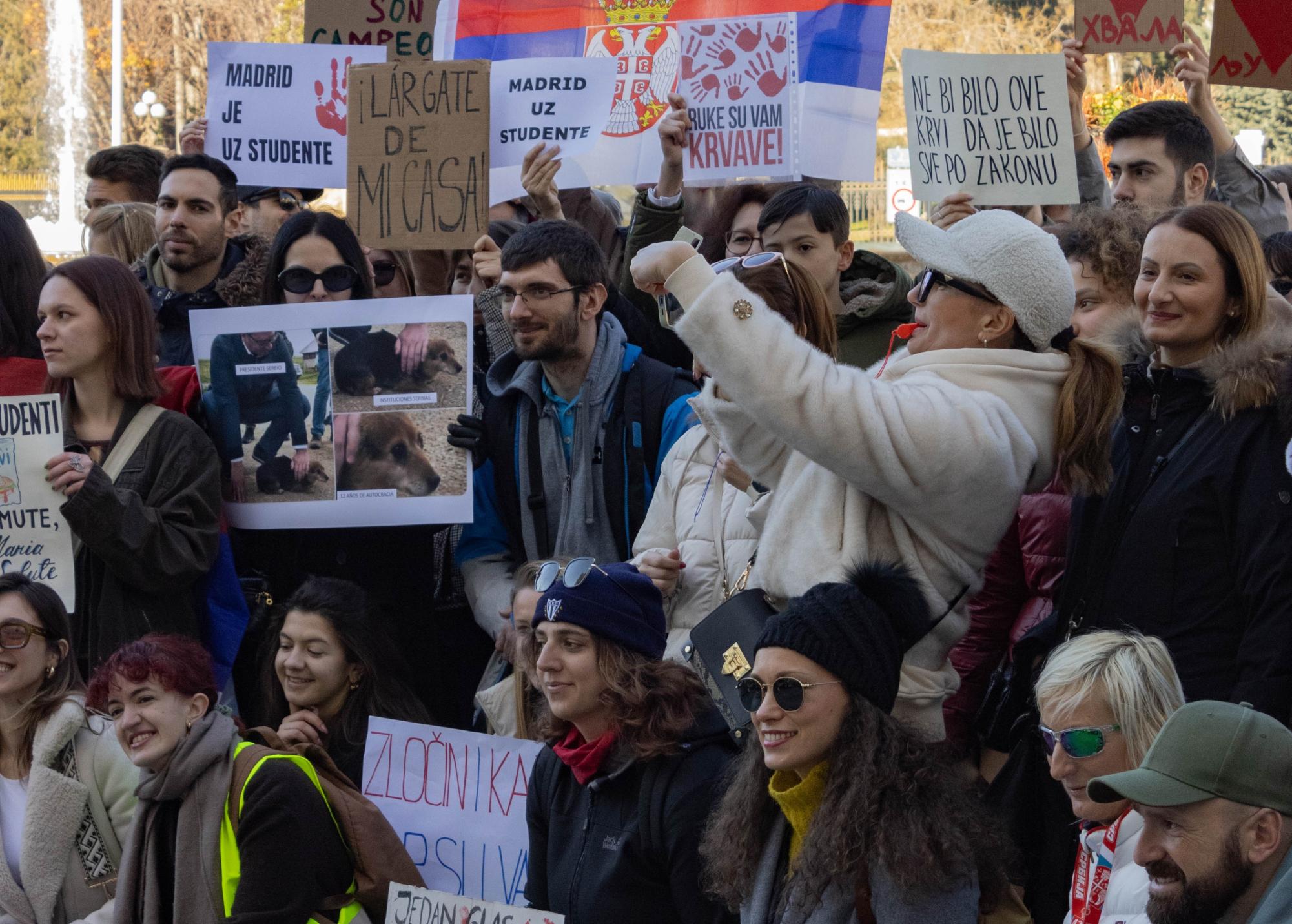
Serbian Students in Madrid Remember Victims of Train Station Collapse
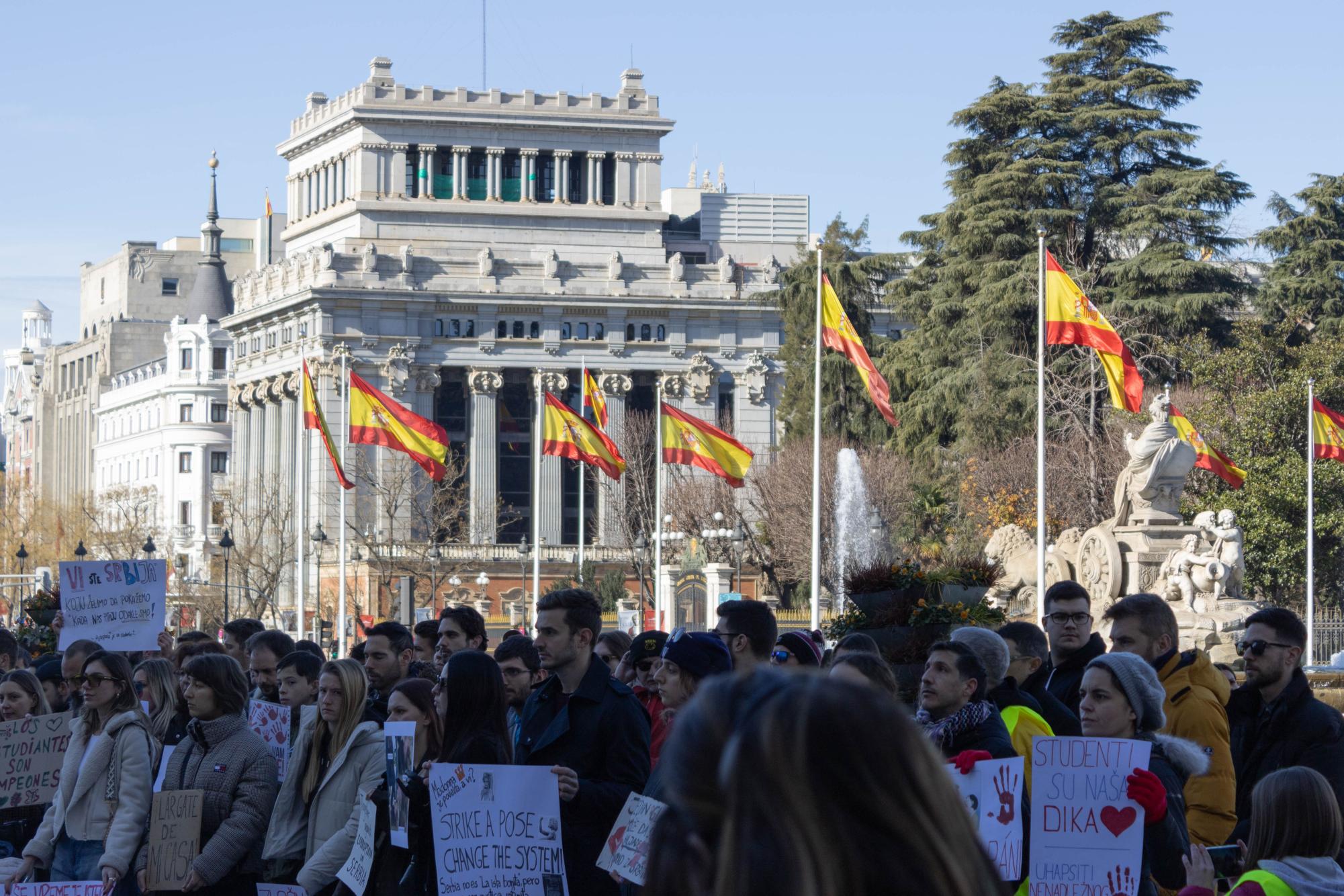
On Nov. 1, 2024, a tragedy befell all of Serbia when a portion of Novi Sad’s main train station collapsed without warning. The train station had been under major renovations since 2021, as part of a larger infrastructure project intended to modernize and expand the country’s rail system. Yet just a few months after its reopening on July 5, 2024, a structural failure in the canopy above the station’s main entrance would cause a catastrophe.
In the wake of this disaster that killed 15 and injured two others, investigations pointed to corruption and shoddy construction quality as possible causes, turning the country’s grief into a demand for justice.
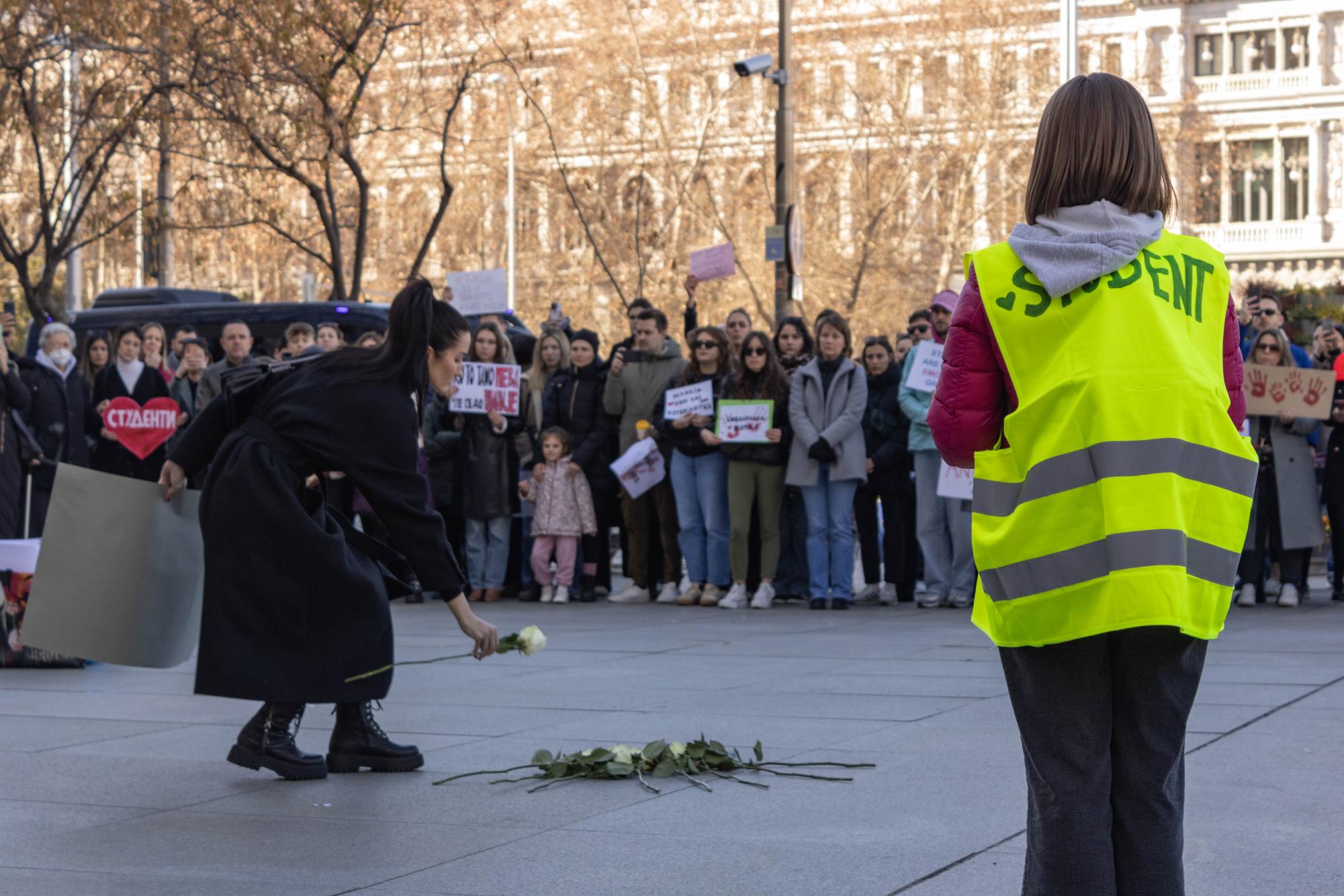
At 11:52 am, the exact time of the canopy collapse, the ceremony began in remembrance of the victims:
Milica Adamović, 16, Sanja Ćirić Arbutina, 35, Đorđe Firić, 53, Sara Firić, 6, Valentina Firić, 10, Stefan Hrka, 27, Mileva Karanović, 76, Nemanja Komar, 17, Miloš Milosavljević, 21, Goranka Raca, 58, Vukašin Raković, 69, Anđela Ruman, 20, Vasko Sazdovski, 45, Đuro Švonja, 77, Anja Radonjić, 24.
With the reading of each name, a white rose was placed in the center of the crowd.
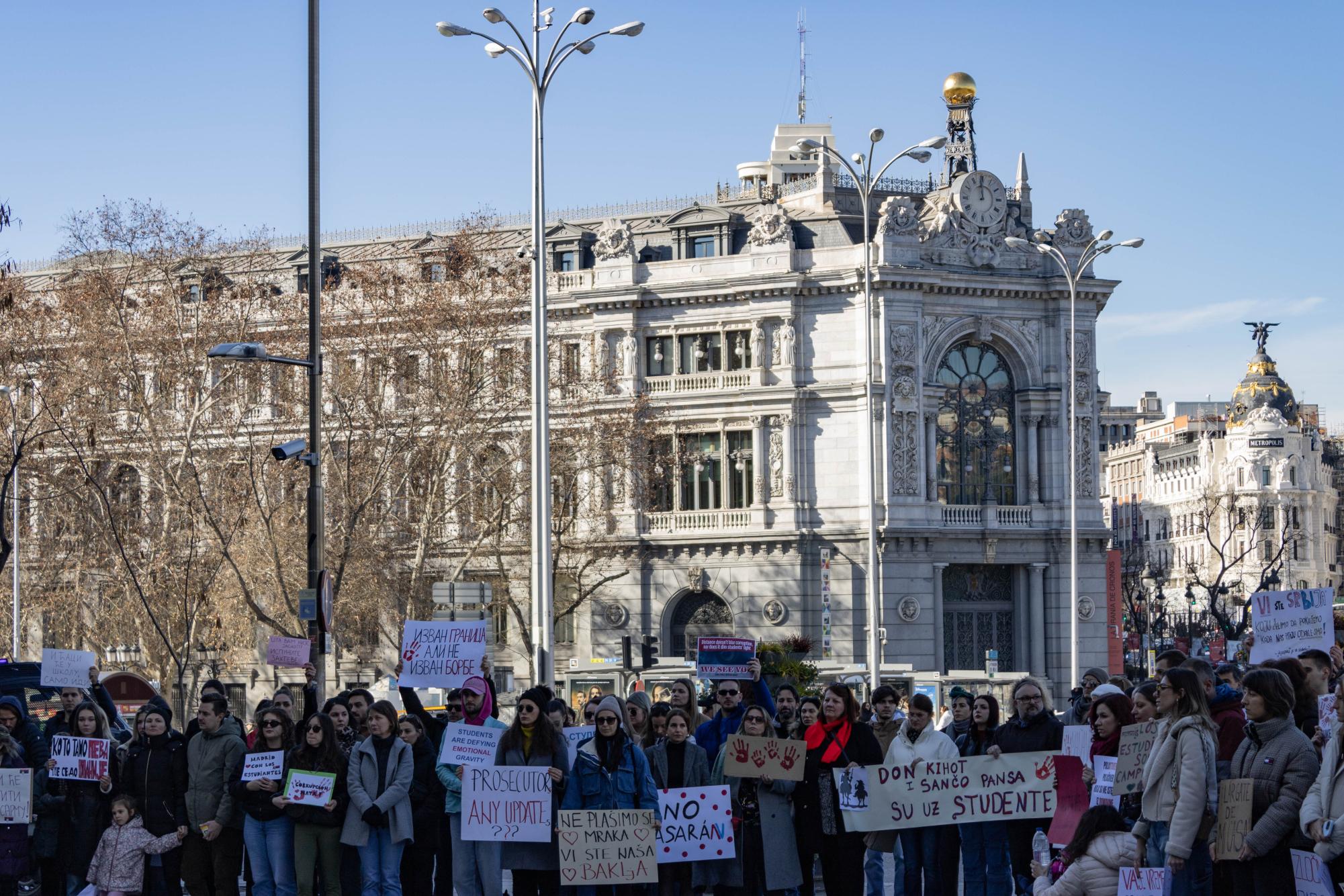
As the moment of silence ended, the protestors raised their voices. They had come not only to grieve but also to demand answers. For them, the tragedy was not a freak accident; it was the result of years of government negligence and corruption.
One sign read: “Distance doesn’t blur corruption, nor does it dim students’ light.”
Another read, “Prosecutors, any updates?”
Some signs were written in Serbian Cyrillic. A sign with these characters, “Изван границе али не изван борбe,” said: “Outside the border but not outside the fight.”
Another referred to Cervantes’ heroes: “Don Kihot I Sančo Pansa su uz studente,” or “Don Quijote and Sancho Panza are with the students.”
One protester played on a Serbian film title, “Кото тамо пева чује седо шпаније,” or “Who sings there, hears the silence of Spain,” symbolizing their voices reaching beyond borders.
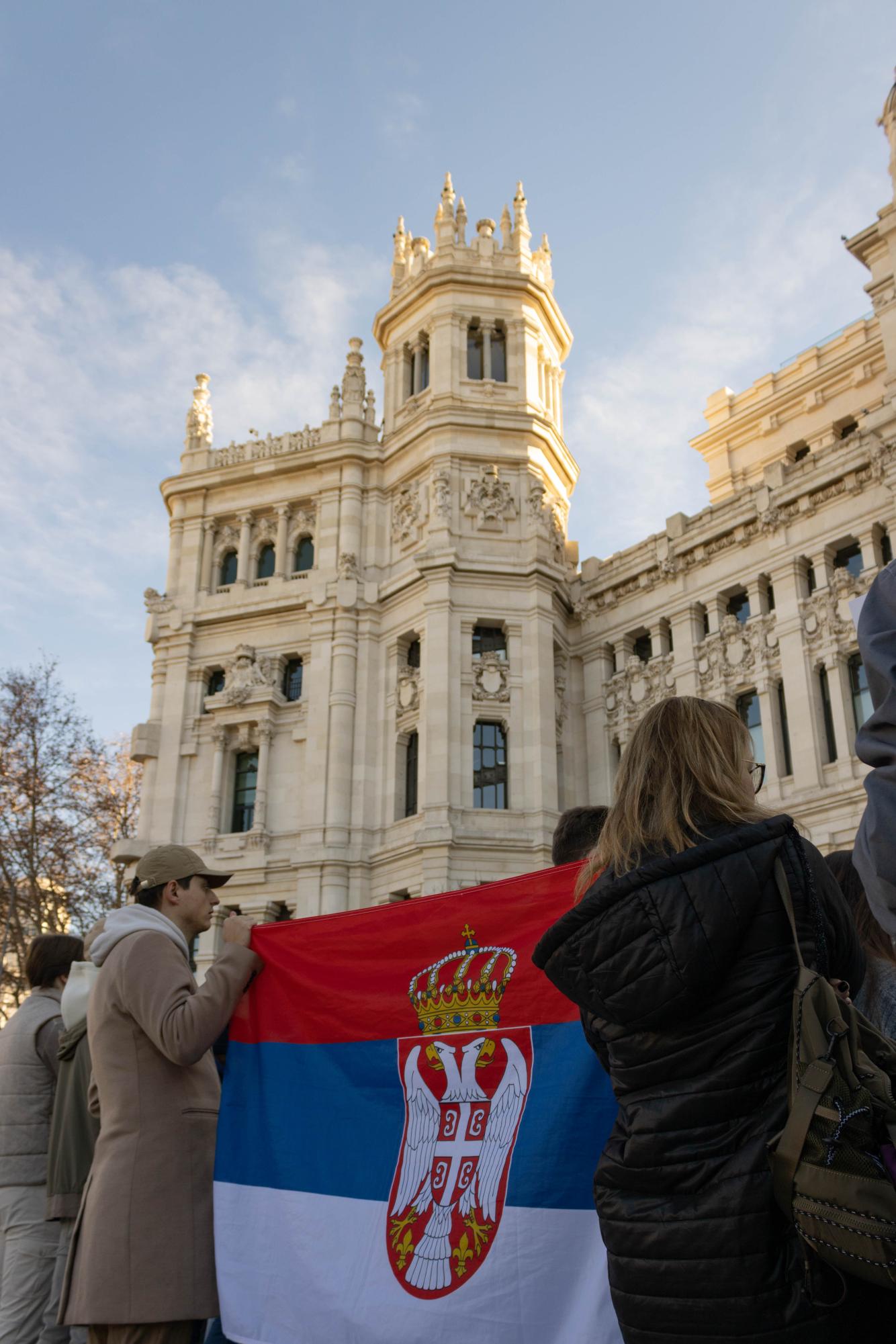
In the months following the disaster, there have been a countless number of these protests, both in Serbia and abroad, and the responses from President Vučić have been criticized for their lack of substantial reform. Despite more than two thousand kilometers separating them from their homeland, these students found home in each other and their support for a common cause – Justice.
Even in mourning, moments of levity revealed the strength of this community, and their motivation to persevere. Prideful smiles emerged as one of the speakers delivered a hopeful call to action. A few participants used humor to lighten the mood, holding up satirical signs criticizing government officials using popular meme templates.
As the protest came to an end, the protestors gathered for a photo and held up their signs, making it clear that their resilient demands for justice would continue.
“Citav plen da skupe, pa ne mogu da nas kupe da nam mladost kao sitan kusur odbroje,” read one sign, which means: “They gather all the wealth, but they can’t buy us, nor can they count our youth like loose change.”
A Spanish-language sign read, “Soy lo que enseñó mi padre: El que no quiere a su patria no quiere a su madre. SOY SERBIA. Un pueblo sin piernas pero que camina,” which translates to: “I am what my father taught me: He who does not care for his country does not care for his mother. I am Serbian. A people without legs but that walks.”
